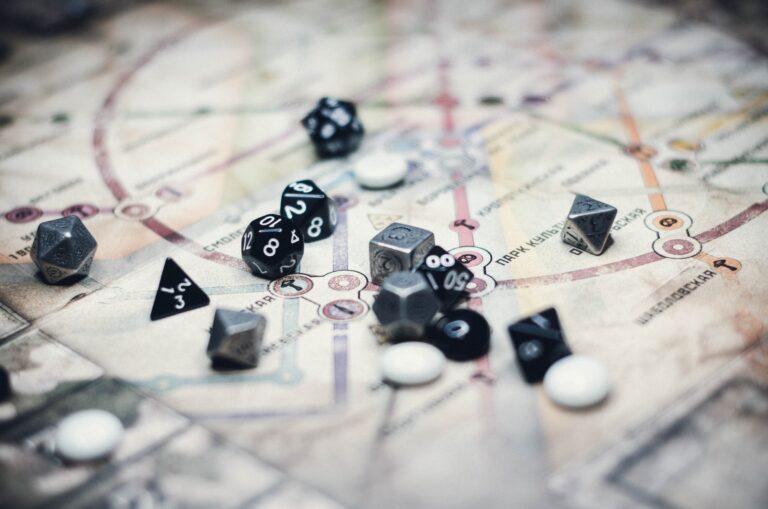
The last few posts have been something of a series, all inspired by a single argument: “Storytelling Games are Not Roleplaying Games.”
- In What Isn’t a Role-Playing Game? I talked about attempts to redefine the term while also making an argument for why the task seems both doomed and probably pointless.
- In Sweet & Spicy Honey Chicken Sriracha Role-Playing, I speculate a bit on how we keep ending falling into this trap and the unaddressed needs that are leading us to this point.
- Finally, in Posting Signs, I attempted to do something more productive. I offered some lenses by which we could analyze different games and example language to describe them. The idea here being that if we could get people into the frame of discussing what they actually want, it might move the conversation past fighting over the umbrella term itself.
If you haven’t read any of these, the third is the most useful. The second can be skipped entirely as preamble.
I had intended for Posting Signs to be the last installment in all this. I’d said what I wanted to say and I’ve got other stuff I’d like to write about. Then when I’d completed the third post, I went ahead and shared some links around for feedback. I’m pleased to say that this was largely supportive and appreciative of the effort. The terminology was well-received and it lead to a lot of good discussion. I did my best to respond to most of that where it took place, but one point emerged that I thought was worth a final post on this subject. [If you’re short on time, skip down to “I’ve come at this backwards” in bold.]
I am a game design nerd. I get really into how games are written and how systems work, are meant to work, and the behaviors they incentivize at the table. As such, the games I nerd out the hardest for are ones where the game is meant to work in a specific way. Apocalypse World says it best:

Vincent Baker’s Apocalypse World is a game meant to be played in a very specific way, following very specific procedures, and in pursuit of a very specific creative agenda. If you try to play it in other ways, you’re going to struggle with it. It will get in your way, or fail to support you, and generally be a less pleasant experience. We can say the same thing about Ron Edward’s Sorcerer. The creative agenda and intended play style are baked into the rules in such a way that it will fall apart if you try to treat it like, say, D&D. The same could also be said of Luke Crane’s The Burning Wheel, Jake Norwood’s The Riddle of Steel, John Harper’s Blades in the Dark, or any number of other games that get lumped under this very broad umbrella.
The interesting thing is that this is equally true of the OSR movement. Alexander Macris and the RPGPundit both make arguments about a very specific style of play. In their own language: simulationist gaming with a heavy focus on immersion and the explicit goal of modeling a virtual world. Like everyone else in the aforementioned list, their games are explicitly designed towards this specific end.
For all the differences in philosophy between these disparate camps, they share this unifying principle: these are all precision tools. They are games whose mechanics are designed to create a specific, tailored experience that requires — or, at the very least, urges — you to play them in a specific way.
And therein lies the plot twist.
That specific intention in design makes all of these games outliers. They constitute a small fraction of the RPG hobby and its history. Nearly all of what constitutes “traditional rpgs” — every edition of Dungeons & Dragons, GURPS, Pathfinder, Rolemaster, Runequest, Savage Worlds, Shadowrun, Warhammer Fantasy Role Play — has been almost entirely unconcerned with specific play style or creative agenda in the way that Apocalypse World or the OSR movement is.
One of the foundational errors of the “storygames are not RPGs” conversation is this narrative that says “RPGs used to be this one specific thing and then the Forge guys changed the definition to include their new bullshit that’s just pretending to be RPGs.”
RPGs were never one specific thing. There was never a purity and specificity of play experience for the Forge to undermine and redefine. The games of Braunstein and Brownstone that lead into Blackmoor were not run in the exact same ways as Gygax’s D&D group. The 1974 Little Brown Books contained almost nothing about the way the game was meant to be run beyond the procedures for creating dungeons and conducting exploration. People filled in the gaps on their own, learning by instinct and exposure, emulating books and movies, stealing different ideas and making everything their own. From one table to the next, one GM to the next, one campaign to the next, the same system might be played as an open-ended sandbox, an episodic monster of the week, a slice-of-life character drama, or epic narratives based on (hopefully) well-hidden rails.
People were trying to run “narrative,” story-driven games for as long as the hobby has existed. Everything that came out of the Forge — the ideas, theories, games that developed — were a response to the way people were already playing. They were experiments intended to better model the fiction people were trying to emulate, to tailor systems towards producing the kinds of experiences people were already pursuing. Likewise, the OSR was a reaction both to ideas introduced by the Forge and also the evolution of mainstream D&D. As a result, it went in pursuit of its own specific desired play experiences, modifying games in such a way as to support them.
All of this brings us back to the point I eluded to in the beginning:
I’ve come at this backwards. The goal of Posting Signs was to offer some vocabulary for analyzing games based on their design choices, specifically around how they were meant to be played. The problem is that this presupposes games built on focused designs meant to be played in a specific way… but these games are a tiny fraction of the hobby. The vast and overwhelming majority of games published, purchased, and played do not follow this model.
If you ever watch content creators in the youtube consumer tech scene, there is phenomenon that crops up where reviewers will spend a lot of time arguing about minutiae, making a big deal over differences in megapixels and refresh rates that would go entirely unnoticed by the average consumer. In reality, nearly any modern smartphone is good enough for basically anyone in the smart phone market. Most people just want a phone. Does it do phone stuff? Will the battery last me until the end of the day? Is it going to feel relatively snappy when I’m doomscrolling through my social media of choice?
The same thing happens with RPG design nerds. The arguments over play priorities or emergent properties or even dumber, more abstract shit like “what are RPGs for” are all things that the average person in the hobby could care less about. They just want to throw some bones with their friends and engage in some escapism.
So I’d like to formally revise my take on the language offered in Posting Signs. Trying to create a taxonomy focused on game design is the wrong way to approach this problem. Instead, the better goal is to create a vocabulary around desired play styles.
This distinction is subtle, but important. Orienting the conversation about the game design means that any conversation about “intended play” is going to be useless for the bulk of games that are effectively play style agnostic. By orienting the conversation instead to be around desired play-style, then we can be very specific in what we’re looking for without immediately discarding anything that wasn’t a game built explicitly for that specific purpose.
One day, I’d like to return to this topic in a more productive fashion. I think there’s some real utility in establishing more shared language in the hobby. I’d like to live in a world where someone goes to post on reddit or whatever:
“I’m really into <concept> and I want to run it as a game, but I’m into <Player-led, GM-Referee, No non diegetic elements, whatever>.. What game system works for this?”
And people knew what they were asking for, everyone on the same page. I’d love to see people have that kind of language to use when recruiting new players, or establishing expectations during session zero. These are conversations people are already having, but awkwardly, hamstrung by the lack of useful vocabulary.
But that’s an issue for another day, one that requires much more thought than I can currently invest.
Until next time,
Happy New Years!



